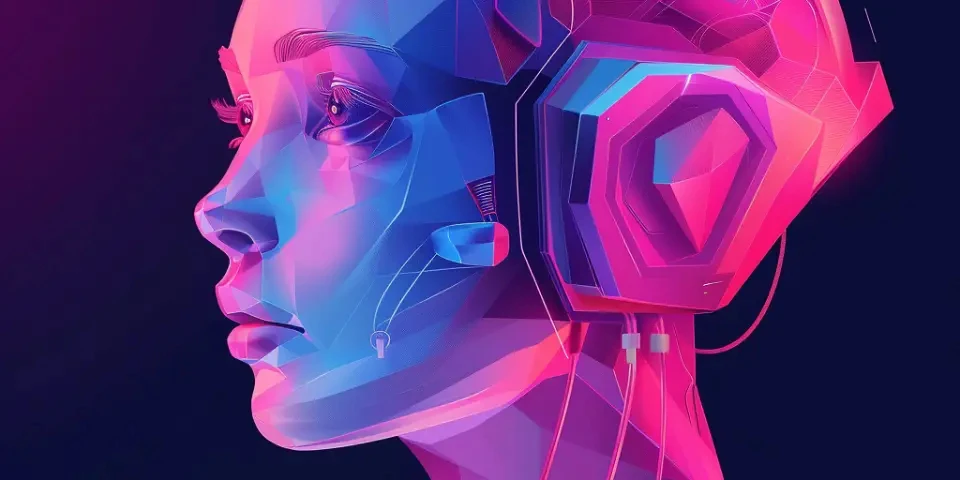AI for Everyone Empowering Individuals with Accessible and Inclusive Technology
Artificial Intelligence (AI) has the potential to revolutionize our lives, but it is crucial that this transformative technology is accessible and inclusive to everyone. By creating AI technology that caters to the diverse needs of individuals, we can pave the way for a more inclusive future. In this article, we will explore how AI can empower individuals through various aspects:
1. Education and Learning
AI-powered applications, such as online tutoring platforms, personalize the learning experience for students of all abilities and learning styles. These platforms utilize adaptive algorithms to identify knowledge gaps and provide tailored content, ensuring that every student receives the support they need to succeed.

Furthermore, AI can bridge language barriers by providing real-time translation services, making educational resources accessible to students regardless of their native language. This promotes an inclusive learning environment where language is no longer a barrier to education.
2. Healthcare and Accessibility
AI technologies have the potential to revolutionize healthcare by enhancing accessibility and improving patient outcomes. Intelligent virtual assistants can provide personalized healthcare information, reminders, and medication management for individuals with disabilities or chronic conditions, empowering them to take control of their health.
Additionally, AI-powered diagnostic systems can assist healthcare professionals in diagnosing diseases more accurately and efficiently. These systems analyze medical data, detect patterns, and provide insights that facilitate early detection and intervention.
3. Employment and Workforce
AI can empower individuals with disabilities by providing them with new opportunities for employment. Assistive technologies, such as AI-powered prosthetics or exoskeletons, enable individuals with physical disabilities to perform tasks that were previously challenging or impossible.
Moreover, AI-powered job matching platforms can connect individuals with disabilities to suitable employment opportunities based on their skills and abilities. By removing biases and highlighting capabilities, AI fosters a more inclusive job market.
4. Assistive Communication
AI enables individuals with speech or communication disabilities to express themselves more effectively. For example, text-to-speech systems powered by AI algorithms can convert written text into spoken words, aiding individuals with speech impairments in communicating their thoughts and ideas.
Furthermore, AI-powered predictive text suggestions and autocorrect features assist individuals with motor or cognitive impairments in writing and sending messages with greater ease.
5. Personalized Customer Experience
AI-based recommendation systems play a significant role in providing individuals with personalized experiences. These systems analyze users' preferences and behaviors to offer tailored product recommendations or content suggestions, ensuring a more inclusive and engaging user experience.
Companies like Amazon and Netflix leverage AI algorithms to analyze user data and provide customized recommendations, enhancing the overall customer experience and making it more accessible to diverse audiences.
6. Transportation and Accessibility
AI is transforming the transportation industry, making it more accessible for individuals with disabilities. Self-driving cars, powered by AI algorithms and sensors, can provide individuals with mobility impairments the freedom to travel independently, improving their overall quality of life.
Moreover, AI-powered traffic management systems optimize routes and provide real-time information to assist individuals with visual impairments or cognitive disabilities in navigating public transportation networks more efficiently.
7. Cybersecurity and Bias Mitigation
AI can contribute to a more secure and inclusive digital environment. AI-powered cybersecurity systems can detect and prevent cyber threats, safeguarding individuals' privacy and protecting against identity theft or online harassment.
Furthermore, AI algorithms can help identify and mitigate biases present in data or decision-making processes. By addressing biases, AI can ensure fair and inclusive outcomes, promoting equal opportunities for all individuals.
8. Ethical Considerations and Transparency
As AI becomes more prevalent, it is essential to address ethical considerations to ensure its responsible use. Transparency in AI algorithms and decision-making processes is crucial to avoid discriminatory practices and build trust with users.
Organizations like OpenAI advocate for AI technologies that are transparent, explainable, and accountable. By promoting ethical guidelines, we can ensure that AI benefits everyone and is not used to reinforce existing inequalities.
Frequently Asked Questions:
Q: Can AI replace human teachers?
A: AI cannot replace human teachers, but it can enhance the learning experience and provide personalized support for students. AI-powered educational platforms complement human teachers by adapting to individual needs and offering targeted feedback and resources.
Q: How can AI improve accessibility for individuals with visual impairments?
A: AI can improve accessibility for individuals with visual impairments through technologies like computer vision, which enables text-to-speech conversion, object recognition, and navigation assistance with the help of wearable devices or smartphone apps.
Q: Are AI algorithms biased?
A: AI algorithms can be biased if they are trained on biased data or designed without careful consideration of potential biases. It is crucial to ensure diverse and representative data sets and include ethical guidelines in AI development to mitigate bias and promote fairness.
References:
1. Adaptive learning and personalized learning platforms: https://www.knewton.com/
2. AI-powered diagnostic systems: https://www.ibm.com/watson/
3. AI-powered job matching platforms: https://www.turing.com/
Explore your companion in WeMate